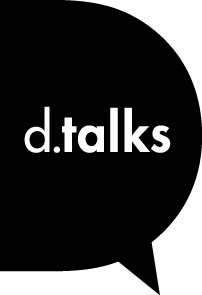“We don’t have a word for nature,” replies Greves Pouchette, an Eyathka (Stoney) born artist and member of the Îyârhe Nakoda, in response to a question about the Indigenous relationship to nature. “Mâkoche means Mother Earth,” he adds, broadening the definition to include the mountains (Îyârhe), animals and plants. Drawing a connection between North American and South American Indigenous perspectives, Shuar architect Fernando Huambutzereque shares how the Shuar Indigenous people of the Amazon are in relationship with all beings that inhabit the territory. This relationship changed with colonization, but the universal language connecting humans to nature is still important to understand. “We have forgotten, but we will rediscover it,” Fernando adds.
Elder Michael Wolfleg Sr. opened the discussion with a prayer that encouraged us to listen carefully, to come to a greater sense of respecting each other. Ana María Durán Calisto draws connection with Elder Wolfleg’s call by looking at the language we use to describe our relationship with nature, and relationships with others. “We tend to think in anthropocentric ways, people, culture, listening to each other. But you’re also clarifying…that we’re deaf to the many languages of nature and we really need to pay attention and listen to those voices as well.”
“I was really impacted by Greves’ words,” replied Fernando. “It is true that here in the Amazon we had that connection but in the wrong way. We never understood the language of the jungle.” To understand the ecosystems, he continues, “If we don’t know how people lived here for centuries, we will never understand that language.”
With plans to expand the boundaries of mineral and oil extraction in Ecuador, the Shuar are trying to protect Mother Nature within their territory. In Canada, we’re also familiar with the effects of resource extraction: the face of mountains consumed for gravel, for instance, but equally what’s left behind with oil, gas and mineral mining. Our duty is awareness, and to reflect on how our values are driving action. Ana María mentioned how economic alternatives are emerging based on renewal and the regeneration of life. “So many in Ecuador are saying, let's go from a predatory model to a model of regeneration (depredación a la regeneración),” she concluded.
An audience member asked, “Do you feel that persons of colonial cultures can be shown their own capacity to hear or feel the language of the earth?”
Greves and Fernando both answered in the affirmative: yes, we all have something to learn. Greves extends the imperative, that learning is not just for the betterment of the human race: “It's for Mother Nature…We only have one home, and that's Mâkoche, our mother. If we destroy it, where else are we going to go?” We have to remember, explains Fernando, that we are a part of nature, that we must practice respect over nature and culture. Our relationship matters. Ana María adds that reconciliation is a journey and that, “understanding and acknowledging it is not enough. We need to heal, restore, and compensate.”
The conversation, starting with a prayer in Blackfoot and continuing in both English and Spanish, was an action itself. Christina Amaral-Kim from the FOLD committee described this as a living example of a “willingness to listen to each other.”
Our relationship between settler and Indigenous world views and between nature and culture are shaped by language, both in terms of meaning and understanding (and misunderstanding). To understand means to respect others — humans, mountains, sand, water, plants and trees, and other animals. From this perspective, we might begin to design differently.
PArticipants
In order of appearance
Elder Michael Wolfleg Sr.is a member of The Brave Dog Society Siksika Nation Treaty 7 Territory.
Ana María Durán Calisto is an Ecuadorian architect, academic and urban-environmental planner. For more than two decades, she has been investigating urbanization processes in the Amazon basin with an emphasis on the oil urbanisms of Ecuador and indigenous systems of settlement. Ana María has co-edited the books Beyond Petropolis: Designing a Practicable Utopia in Nueva Loja and Ecological Urbanism in Latin America. She is currently a professor at Yale School of Architecture and the Harvard Graduate School of Design.
Greves Pouchette is Eyathka (Stoney) born, raised and still residing in Mini Thni (Morley) on the Stoney Nakoda First Nation, east of Calgary. He is a well-traveled artist who has attended celebrations, shows, and festivals as a performer and participant. He relishes the opportunity to make new friends, connect with old friends, and learn about other cultures and customs…something he continues to do today.
Fernando Huambutzereque is a Shuar architect working in Ecuador. He led the team that developed the Achuar Life Plan, a territorial planning scheme advanced by the Achuar First Nation of Ecuador. He has collaborated with several Amazonian municipalities, and is currently envisioning a forest resurgence program for the highway that leads from Macas to Huamboya.
FOLD Editorial Committee Closing Remarks by: Christina Amaral-Kim
Translation courtesy of: Ariadna Molina and Francisco Villalobos
Recognition of support
This talk was produced in partnership with the Calgary Public Library. The talks are part of the Interrupt, Reframe issue of FOLD, published by d.talks.
Interrupt, Reframe was made possible with the support of Canada Council for the Arts, in addition to the ongoing support of Calgary Arts Development and the Alberta Foundation for the Arts.

